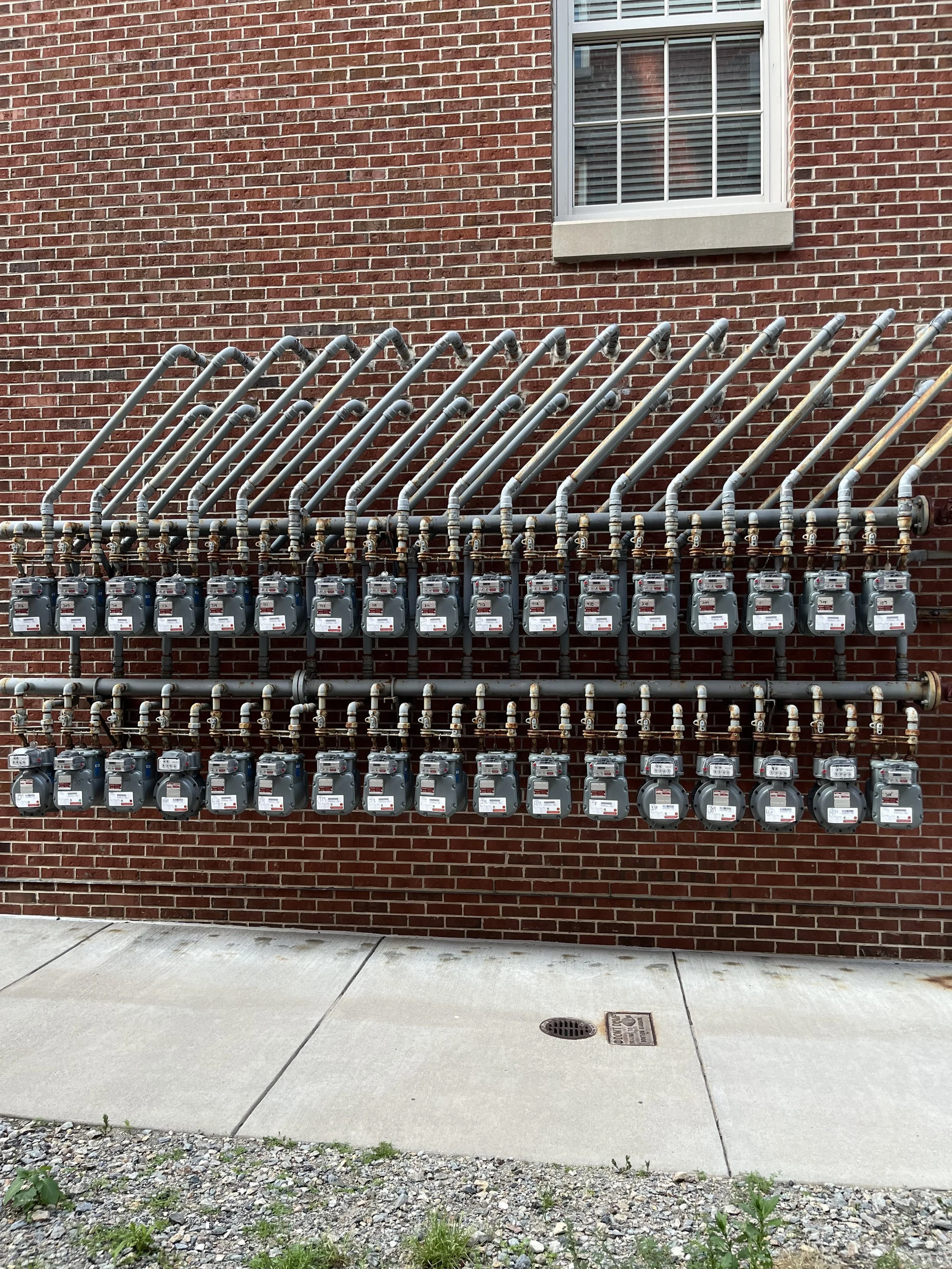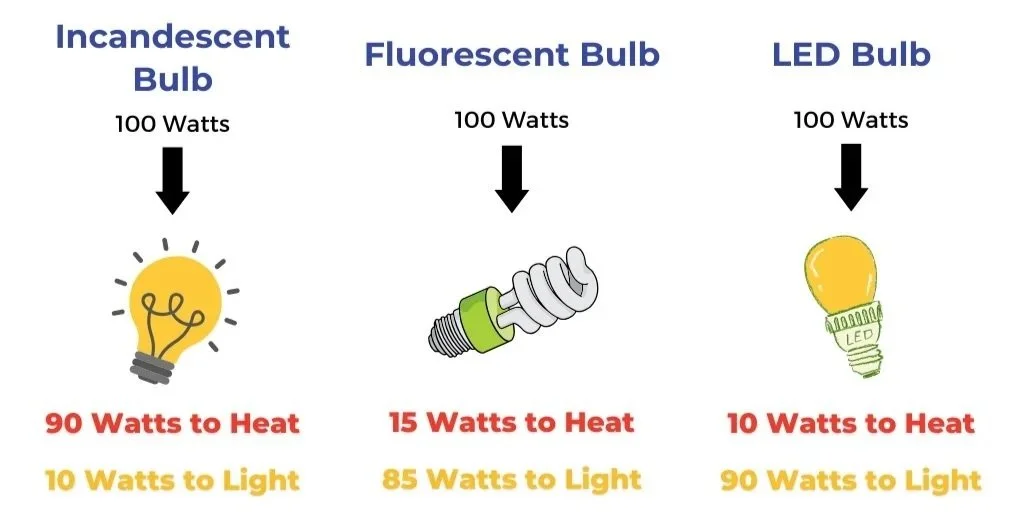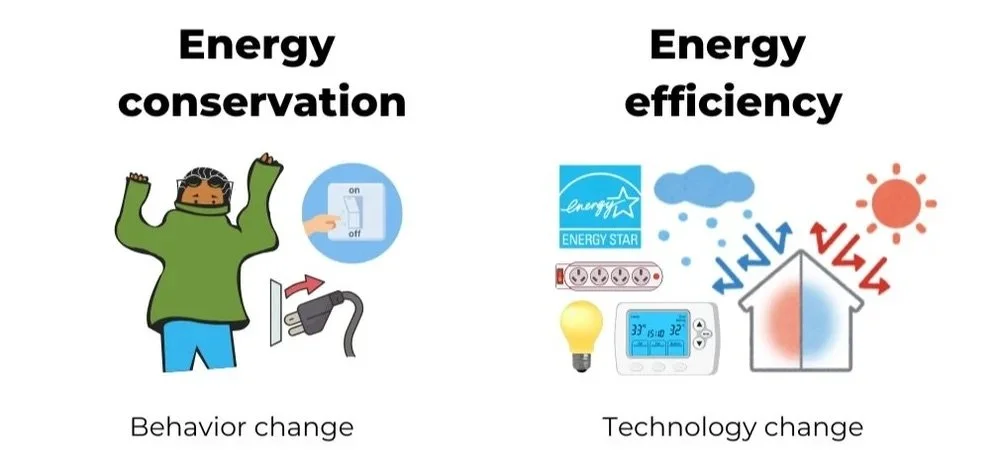
Energy Efficiency
What is energy efficiency?
Energy efficiency is a term or concept that refers to reducing energy without changing behavior. In other words, it means using less electricity to run an appliance or device—such as a refrigerator, heater, computer, etc.—as normal. For example, LED light bulbs can use up to 90% less energy than incandescent light bulbs over a given period of time. By using less energy, energy efficiency can lead to remarkable savings on people’s utility bills over time, and it also helps reduce greenhouse gas emissions.
Energy Efficiency Vs Energy Conservation
Energy efficiency is not the only way to use less energy. Energy conservation—saving or conserving energy by simply using electronic or gas-powered appliances and devices less—is another way to save energy. This can mean, for example, putting on an extra layer instead of turning the heat up. This differs from energy efficiency, which would involve using an energy-efficient heater or a smart thermostat. Let’s examine the difference between energy conservation and energy efficiency closer:
Source: Penn State Center for Nanoscale Research | Graphic: Climable, 2021
Energy conservation - Using fewer energy sources to reduce energy use. This typically involves changing routines and behaviors to rely less on electronic or gas-powered devices and appliances.
For example: turning off the lights when you leave a room, using appliances less often, or putting on an extra layer instead of turning up the heat. This can save you money, reduce demand on the grid, and lower your carbon footprint
Energy efficiency - Using less energy to complete the same task or produce the same result. This typically requires upgrading appliances, devices, and other components of a home or building.
For example: improving the insulation of doors, windows, walls, and roofs; upgrading to Energy Star-rated appliances; using a smart power strip.
Visual representation of behavior change examples to conserve energy, and examples of technology upgrades to increase energy efficiency. Graphic: Climable, 2024
What are the benefits of energy efficiency?
Energy efficiency has many benefits—for individuals, communities, and the planet. On an individual level, energy efficiency can lower utility bills, aka save money, and reduce carbon footprints by lowering greenhouse gas emissions.
On a community level, when many households and businesses in an area are energy efficient, all of those savings are increased significantly. This can have tremendous benefits! Reducing the amount of energy an entire community needs helps the electric grid and other energy delivery sources. It also reduces greenhouse gas emissions on a much more impactful scale.
On a global scale, this impact becomes an important way to fight climate change. Greenhouse gas emissions (GHGs) from buildings and fossil fuels used to produce energy and electricity are major contributors to overall levels of GHGs.
Energy efficiency is also an incredibly important public health tool. Homes that are energy efficient maintain stable indoor temperatures, keeping people safer during heat waves and cold snaps. Additionally, reducing fossil fuel usage reduces air pollution, leading to better long-term health outcomes for communities in close proximity to extraction sites and refineries.
How can I improve my energy efficiency?
Being more energy efficient can look different based on the type of consumer you are. Mass Save is a program here in the Commonwealth that helps residents and businesses increase their energy efficiency. They offer incentives, programs, and support to help renters improve their energy efficiency.
As a renter:
Though most renters may be limited in what they can do for energy efficiency, there are still ways you, as a renter, can be more intentional with your energy use:
Replace incandescent light bulbs with ENERGY STAR-certified LEDs
Plug devices into an advanced power strip and turn it off when they are not in use. This prevents phantom power consumption and can save up to $100 a year!
Use the locks on windows and doors. This helps to seal it shut and reduce drafts.
As a home or building owner:
Home and building owners have a greater ability to implement energy efficiency, although costs can be prohibitive. Mass Save offers rebates and incentives to help with affordability. Here are options to enhance your home or building’s energy efficiency:
Upgrade to ENERGY STAR-certified appliances and electronics when old ones give out, as these models are independently tested to ensure efficient performance
Owners of residential properties can replace doors and windows to improve their building’s energy efficiency
Invest in solar panels
Check your home’s energy efficiency by checking your home energy score. Get a free energy assessment through Mass Save. Representatives will assess what incentives, rebates, and any additional savings you’re eligible for.
If you’d like to learn more about energy efficiency, reach out to us at hello@climable.org.



